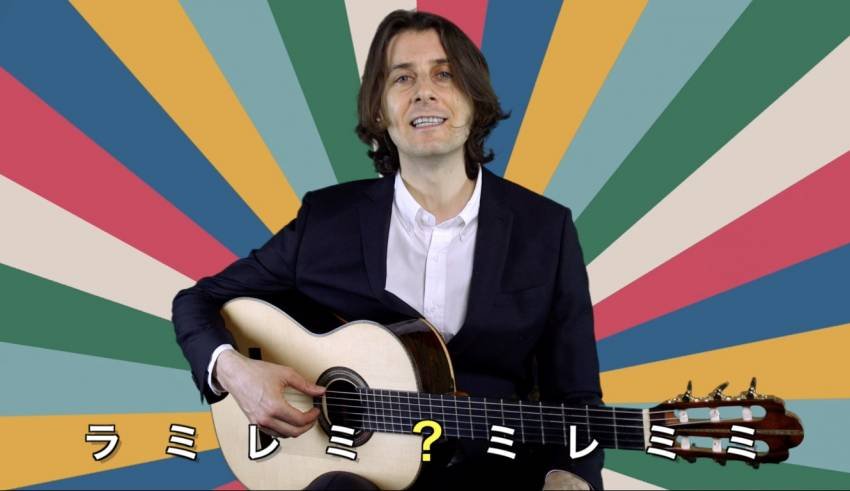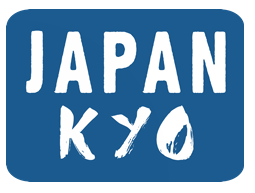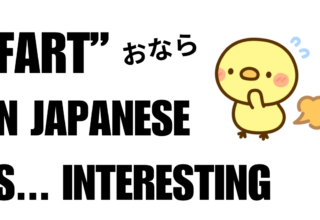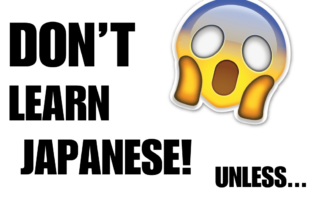
In this episode of the Japan Station podcast we’re going deep into the world of J-pop with Dr. Capital.
Dr. Jonathan Patterson is an Assistant Professor of Popular Music in the Division of Jazz Studies of the University of North Texas College of Music. Also known by the stage name Dr. Capital, he is a composer, singer, guitarist, and an all-around expert on Japanese popular music who has been performing music in Japan for around two decades. Over the course of his career he has worked with a long list of prominent figures in Japan’s music industry, including Shing02, Ayaka, Miho Nakayama, Angela Aki, and many more. Dr. Capital also runs a popular YouTube channel. In his videos Dr. Capital performs acoustic guitar covers of well-known J-pop songs, as well as explains the many musical concepts within them–and he does this completely in Japanese.
In this episode we discuss:
- What inspired Dr. Capital to start playing the guitar
- Dr. Capital’s first guitar
- How Dr. Capital became interested in Japan
- How Dr. Capital became interested in J-pop
- How Dr. Capital first got to Japan
- How Dr. Capital met the rapper Shing02
- What it was like working with Shing02
- The power of music
- Dr. Capitals passion for teaching people about music
- What makes Japanese pop music different from American pop music
- The overabundance of the infamous 1-5-6-4 chord progression in Western pop music
- The music of Yasutaka Nakata
- How Dr. Capital came to learn the Osaka dialect (Osaka-ben)
- And much more!
Note: In the intro of this episode it is incorrectly stated that Dr. Jonathan Patterson is an associate professor at the University of North Texas. As of the time of the release of this episode (08/01/19) Dr. Patterson is listed as an Assistant Professor and not Associate Professor.
Listen to Japan Station on
Apple Podcasts Google Play Stitcher Spotify Tunein iHeartRadio PodBean Overcast
Extra Stuff
Check out Dr. Capital’s website in either English or Japanese via the links below.
Dr. Capital Website (Japanese)
You can also find Dr. Capital on Soundcloud, Bandcamp, and Spotify.
Follow Dr. Capital on social media.
Dr. Capital on YouTube.
Here’s a selection of some of Dr. Capital’s YouTube videos. Many more videos can be found on his YouTube channel. All videos that have English subtitles will be indicated.
Here is Dr. Capital’s explanation and cover of “Lemon” by Kenshi Yonezu. This video has English subtitles.
Here is Dr. Capital’s explanation and cover of “Marigold” by Aimyon. This video has English subtitles.
Here is Dr. Capital’s explanation and cover of “Shin Takarajima” by Sakanaction. This video has English subtitles.
Here is Dr. Capital’s explanation and cover of “USA” by Da Pump. This video has English subtitles.
Here is Dr. Capital’s explanation and cover of “Marionette” by Boøwy. This video has English subtitles.
Here is Dr. Capital’s explanation and cover of “Memeshikute” by Golden Bomber.
Here is Dr. Capital’s explanation and cover of “Memorial” by King & Prince. In this video Dr. Capital discusses the use of the 1-5-6-4 chord progression in “Girls Like You” by Maroon 5 featuring Cardi B. As of the time of this post, this video does not have English subtitles.
Here is Dr. Capital’s explanation and cover of “Kyary Anan” by Kyary Pamyu Pamyu.
Here is Dr. Capital’s explanation and cover of “Koi Suru Fortune Cookie” by AKB48.
Here is Dr. Capital performing “Yasashisa ni Tsutsumareta Nara” by Yumi Matsutoya.
Here is Dr. Capital performing “Amai Bossa Nova,” an original composition he wrote together with Angela Aki.
Next up is a sort of playlist of some of the artists that influenced Dr. Capital. Although not every single artist Dr. Capital mentioned in this episode is represented, this selection contains songs by most of them.
Here is “Rouningyou no Yakata’99” by Seikima-II. Dr. Capital said this was his gateway into Japanese popular music.
Dr. Capital also mentioned the leader of Seikima-II. His name is Demon Kogure (デーモン閣下), a.k.a. Demon Kakka (His Excellency Demon), and he is a demon (akuma) who used to be the vice-king of hell. He now rules over the Earth. Check out the video below to watch a short English-language interview of His Excellency Demon.
Here is “Linda Linda” by The Blue Hearts.
Here is “Body Mandala” by Jonathan Harvey.
Here is “Can You Celebrate?” by Namie Amuro.
Here is “Osaka Strut” by Ulfuls.
Here is “Say Yes” by Chage and Aska.
Here is “Transistor Radio” by RC Succession.
Here is “Marionette” by Boøwy.
Here is “Sweet Soul Revue” by Pizzicato Five.
Here is “Free Fall” by Cornelius (Keigo Oyamada).
Here is a playlist of some of Shing02’s songs.
Here is “Memory of the Future” by DJ Nozawa.
Here is a video of DJ Akakabe.
And finally, if you want to learn more about the infamous 1-4-5-6 chord progression that has taken over American pop music, you should check out the two videos below by Rick Beato. These two videos explain why this chord progression has become so common and present a variety of other interesting information, including the fact that of the 27 number one songs that ThBeatles put out only one song used the 1-4-5-6 chord progression (“Let It Be”). That goes to show that the use of this chord progression wasn’t always as widespread as it is today.
Special Thanks
Opening/Closing song: Oedo Controller (大江戸コントローラー) by Yunomi featuring Toriena (Used with permission from Yunomi)
To listen to more of Yunomi’s music, check out his Soundcloud page or YouTube channel.
Japan Station cover art: Provided by Erik R.
Image: Courtesy of Jonathan Patterson
Note: Sound clips from Dr. Capital’s “Memeshikute” video and audio of “Amai Bossa Nova” were used with permission of Jonathan Patterson















